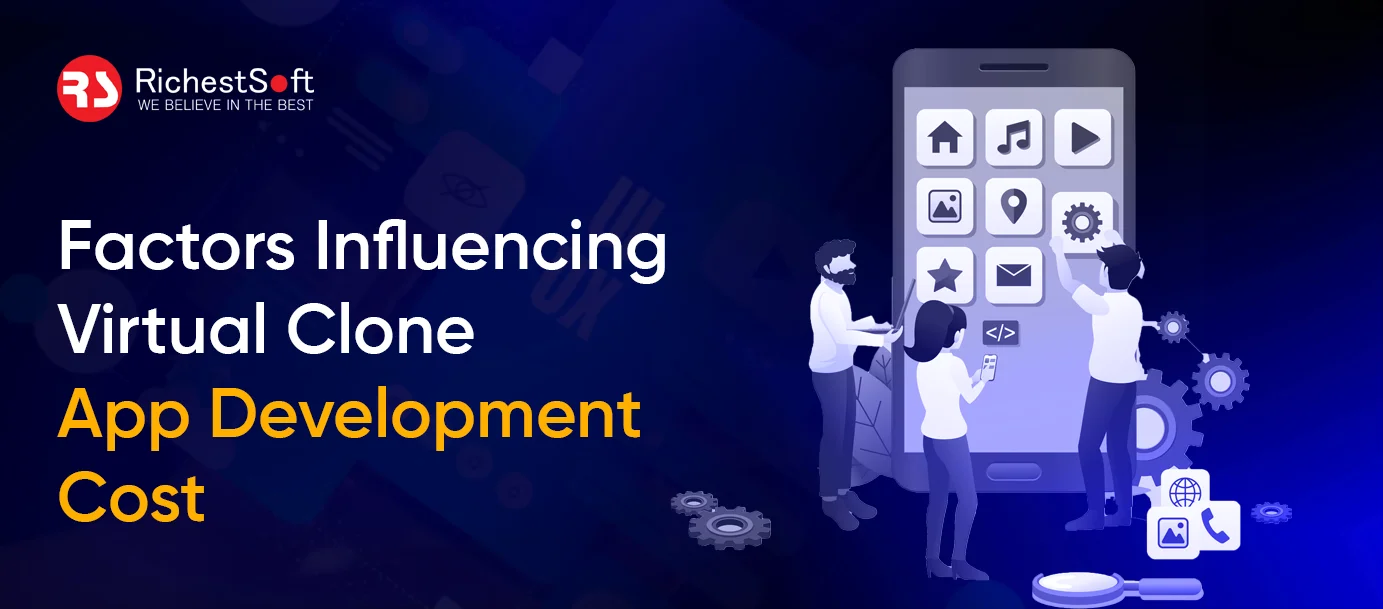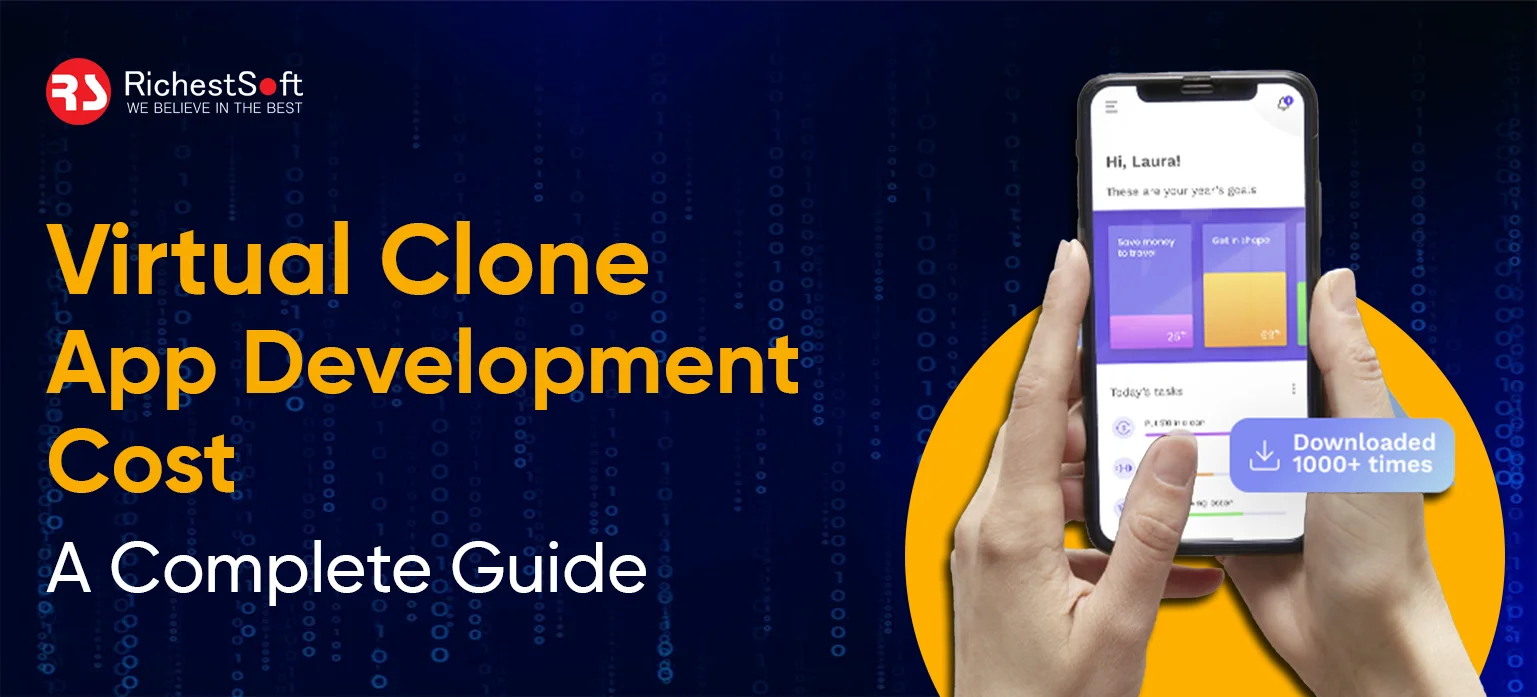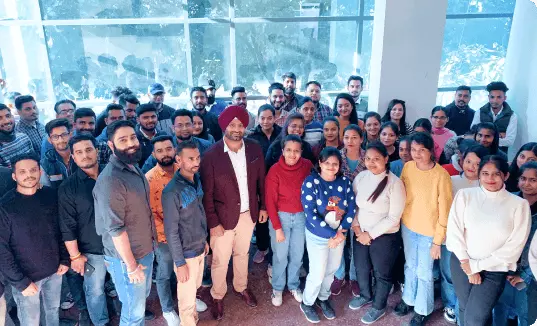September 16, 2025
In this ever-evolving world, the demand for virtual platforms is growing at an accelerating speed. In fact, be it any industry, whether e-commerce, gaming, or dating, every business enthusiast is interested in virtual clone app development. Businesses now see these apps as innovative ways to captivate users and make a profitable entry in the market. But how much does Virtual Clone App Development Cost, and what determines it?
Understanding the cost of developing a virtual clone app is essential before starting a project. And you know what, from small features to advanced functionalities, there are several factors that influence investment. Knowing what affects pricing helps businesses plan efficiently and avoid surprises. Want to know about it? Keep reading this post to get an idea of the development cost of virtual clone apps
An Overview of Virtual Clone Development
Virtual clone app development means building digital versions of popular apps or platforms that already succeed in the market. These apps carry similar features, layouts, and functions, but can be customized to suit a new brand. Businesses often see them as a quicker route to enter competitive markets with tested ideas.
Instead of starting everything from scratch, you can build clones that already have a proven user experience. This approach saves time, opens faster revenue paths, and lowers the chance of product failure.
But here’s a question worth asking: what kind of virtual clone apps can your business build?
Industries To Build Virtual Clone Apps
- Entertainment: Media firms can launch clone apps of streaming platforms to capture content-hungry audiences fast.
- Social Media: Agencies can build clone social platforms to tap into trends and run influencer-driven communities.
- Business & Marketing: Companies can create clone CRMs or marketing tools to serve clients under their own brand.
- Education & Training: EdTech firms can build clone learning apps to offer courses, quizzes, and digital classrooms.
- Healthcare & Wellness: Healthcare firms can build clone health-tracking or appointment apps to reach patients online.
- Retail & E-commerce: Retailers can launch clone e-commerce apps to sell products with a familiar shopping experience.
The market for virtual clone app development is expanding fast as brands race to build trusted digital products. Entrepreneurs invest in clone apps to enter new markets with less time and higher user trust. Clone apps often attract early traction, which then grows into sales and consistent brand visibility.
Business Benefits of Investing In the Virtual Clone App
- Fast launch time: Businesses can roll out their apps in less time because the core structure is already tested. This allows them to capture market attention while competitors are still planning their first steps.
- Lower development risk: Companies step into the market with tried and trusted designs that already connect with active users. This reduces the chances of facing major setbacks during the launch phase.
- Brand ownership: Enthusiasts can build a white-label app inspired by any virtual app with their own branding, style, and content without altering the trusted model. This helps them stand out while offering users a familiar experience.
- Scalable growth: Clone apps can grow steadily as companies introduce new features to match rising market demands. This flexibility lets businesses expand without disrupting existing user experience.
- Cost-friendly entry: Businesses can save heavy upfront costs by skipping long design research and early trial phases. This keeps investment low while still delivering a market-ready product.
Virtual Clone App Development Cost
Are you curious about how much it costs to develop a virtual clone app? Let’s be real, estimating the right budget for such a project can be tricky. The overall cost depends on multiple factors, including design, features, platform choice, and the expertise of the development team. Understanding these factors helps plan your investment better and avoid surprises.
Several factors that influence the development cost:
- App Design & User Interface
- Integration Of Features & Technology
- Project Size & Complexity
- Development Team Expertise
- Platform Choice
Usually, when you choose a custom virtual app from scratch, the cost goes from $40,000 to $250,000 or more. But you don’t have to worry when you are thinking of investing in a clone! A virtual clone app is a budget-friendly choice. This is because you get a ready-made, or we can say a proven business concept that does not require additional investment in planning or design from scratch.
Clone apps let you focus on styling it with your own brand while using a tested model. You can also upgrade them over time as your users grow. And guess what? A virtual clone can range from $25,000 to $85,000. But there are some factors that can influence its cost. Want to know about them? Consider reading below!
Factors Influencing Virtual Clone App Development Cost

Several factors shape the cost of developing a virtual clone app. Understanding these factors helps businesses plan budgets realistically and make informed decisions. Each factor contributes differently depending on the app’s vision, target audience, and overall complexity. Want to know how? Here are some factors influencing development cost:
App Complexity & Features
The number of features you plan to include shapes how much your project can cost. A basic virtual clone app with simple user actions requires less effort and a lower budget. Adding advanced elements like custom avatars, real-time gestures, chat tools, or AI-driven responses can raise expenses. Each new function demands extra design effort, coding hours, and testing sessions, which gradually increase the total cost.
Platform Choice
The platform you choose, whether iOS, Android, or both, has a direct effect on the development budget. Building for one platform costs less and needs fewer resources. Launching on multiple platforms can attract a larger audience, but it requires extra coding, device testing, and system adaptation. This extra work naturally pushes the total investment higher.
Design & User Experience
A well-built design can change how users feel about your app from the first screen. Clean layouts and smooth movement keep users interested for longer periods. Adding custom animations, interactive panels, or lifelike avatars can improve the overall feel, but it increases the cost. Each visual element takes extra hours and detailed effort from designers and developers.
Integration of AI or AR Technologies
AI and AR add a strong sense of realism and interaction to virtual clone apps. AI enables smart responses while AR creates engaging real-world overlays for users. These advanced elements need special skills, exact coding, and long testing cycles to run smoothly. Their complexity can add more development hours, which raises the final cost.
Maintenance & Updates
The work does not end when your app goes live. Regular updates keep the app stable on new devices and software versions. Bug fixes, content refreshes, and feature upgrades maintain user interest and smooth performance. This ongoing care adds steady costs over time, but it keeps your app active and competitive in the market.
Conclusion
So, at last, all we would say is that hiring the right development partner ensures your app turns ideas into a smooth, fully functional digital experience. The right team guides you through each step and ensures your app reaches its full potential.
And guess what, your go-to support is none other than RichestSoft, known for its deep expertise in virtual clone app development. We understand that building a digital clone is complex, and our team carefully crafts strategies that match your vision and budget. With RichestSoft, businesses build an app that stays functional, engaging, and competitive in the market.

 +1 315 210 4488
+1 315 210 4488 +91 99888 06489
+91 99888 06489







